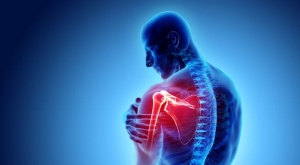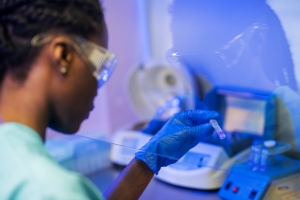Hair loss can be a frustrating experience at any age, but it can be particularly disheartening for young adults. Whether you're noticing a receding hairline in your 20s or increased shedding in your 40s, understanding the causes and potential solutions can empower you to take charge of your hair health. This blog post will explore hair loss across different age groups, highlighting the essential vitamins that can support healthy hair growth at every stage.
Understanding Hair Loss by Age Group: Causes and Differences
Hair loss manifests differently depending on your age and the underlying cause. Here's a breakdown of common scenarios:
- 20s: Hair loss in your 20s can be triggered by various factors, including stress, hormonal imbalances (like those caused by Polycystic Ovary Syndrome or birth control pills), genetics, and nutritional deficiencies. Additionally, harsh styling practices and frequent heat application can contribute to breakage, mimicking hair loss.
- 30s: As you enter your 30s, hair growth naturally slows down. This, combined with continued stress or nutritional shortcomings, can lead to noticeable thinning. Pregnancy and childbirth can also cause temporary hair loss due to hormonal fluctuations.
- 40s and Beyond: Androgenetic alopecia, commonly known as male or female pattern baldness, becomes more prevalent in your 40s and beyond. This hereditary condition is characterized by a gradual receding hairline in men and overall hair thinning in women.
Essential Vitamins for Hair Health in Your 20s
Having a well-balanced diet rich in essential vitamins is crucial for overall health, including hair growth. Here are some key vitamins to focus on in your 20s:
- Biotin: This B vitamin plays a vital role in keratin production, the protein that makes up hair strands. Biotin deficiency can lead to hair thinning and breakage.
- Vitamin B Complex: Other B vitamins, including B6, B12, and folic acid, contribute to cell metabolism and red blood cell production, which are essential for hair follicle health. Deficiencies in these vitamins can hinder hair growth.
- Vitamin C: A powerful antioxidant, Vitamin C helps protect hair follicles from damage caused by free radicals. It also aids in iron absorption, another crucial mineral for hair health.
- Vitamin D: Studies suggest that vitamin D deficiency might be linked to hair loss. Vitamin D receptors are present in hair follicles, and adequate levels are believed to promote hair growth.
Combatting Hair Thinning in Your 30s with Nutrition
As you navigate your 30s, maintaining a healthy diet rich in the following vitamins can help combat hair thinning:
- Iron: Iron deficiency is a common cause of hair loss, especially in women. Iron carries oxygen to hair follicles, and low levels can hinder hair growth. Include iron-rich foods like lentils, spinach, and lean red meat in your diet.
- Zinc: Zinc is essential for protein synthesis and cell division, both of which are crucial for hair growth. Shellfish, oysters, and pumpkin seeds are good sources of zinc.
- Vitamin E: Another antioxidant, Vitamin E protects hair cells from oxidative stress and promotes scalp circulation, which can benefit hair growth. Nuts, seeds, and avocados are rich in Vitamin E.
Managing Age-Related Hair Loss in Your 40s and Beyond
While genetics play a significant role in age-related hair loss, proper nutrition can still contribute to healthier hair:
- Biotin and Vitamin B Complex: Continue focusing on biotin and B vitamins to support hair growth and maintain scalp health.
- Antioxidants: Incorporate plenty of fruits and vegetables rich in antioxidants like Vitamins C and E to combat free radical damage that can contribute to hair loss.
- Protein: Protein is the building block of hair. Include lean protein sources like fish, chicken, and legumes in your diet to support hair follicle health.
The Role of Biotin and Vitamin B Complex in Hair Regrowth
Biotin and the B complex vitamins are often touted for their hair regrowth properties. While research suggests they might play a role in preventing hair loss caused by deficiencies, their effectiveness in stimulating new hair growth in cases of genetic hair loss is less conclusive. However, maintaining adequate levels of these vitamins can still contribute to overall hair health and potentially slow down hair loss. Click here >>>
Antioxidants and Hair Health: The Importance of Vitamins C and E
Free radicals are unstable molecules that damage cells throughout the body, including those in the hair follicles. Antioxidants like Vitamins C and E help neutralize these free radicals, protecting hair follicles and promoting a healthy scalp environment for hair growth.
Vitamin D and Iron: Addressing Deficiencies for Stronger Hair
Vitamin D deficiency has been linked to various hair loss conditions, while iron deficiency anemia is a common cause of hair loss in women. If you suspect deficiencies in these essential nutrients, consult your doctor for proper testing and supplementation.
Conclusion
Hair loss can be challenging at any age, but understanding the underlying causes and implementing proper nutrition can make a significant difference in maintaining healthy hair. Biotin, Vitamin B Complex, C, D, Iron, Zinc, and protein are all vital for hair growth and can be obtained through a well-balanced diet or supplementation. Consult with your doctor if you're experiencing excessive hair loss to rule out any underlying medical issues. Remember that a healthy lifestyle, including proper nutrition, is key to maintaining healthy hair at every stage of life.






